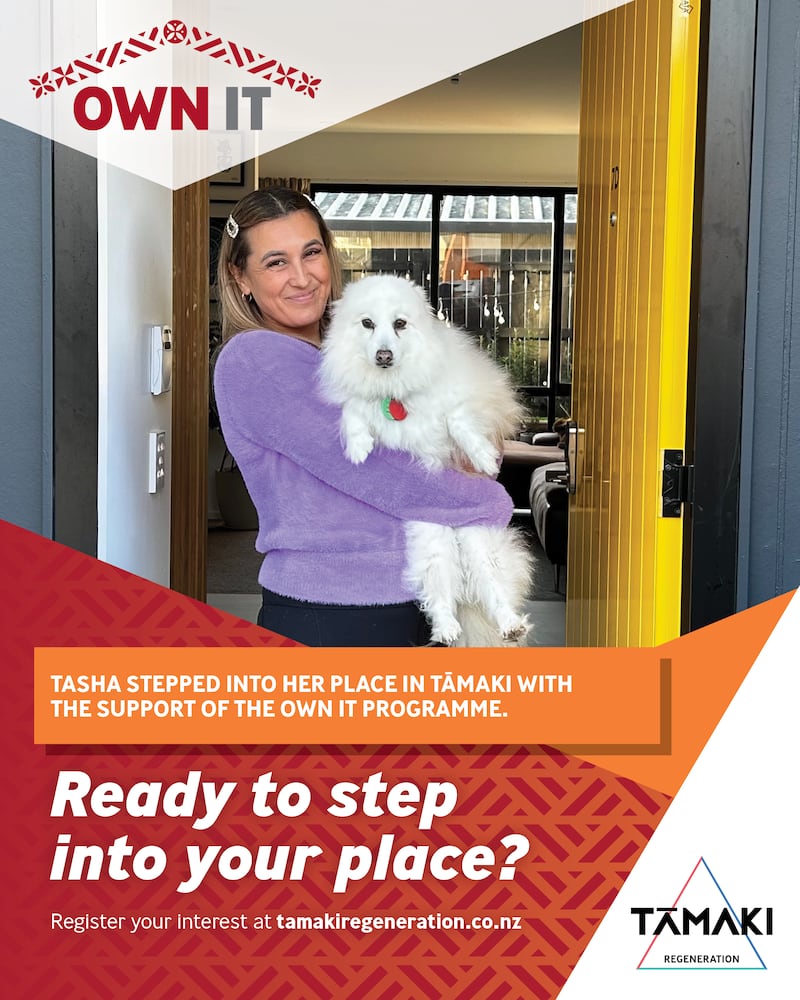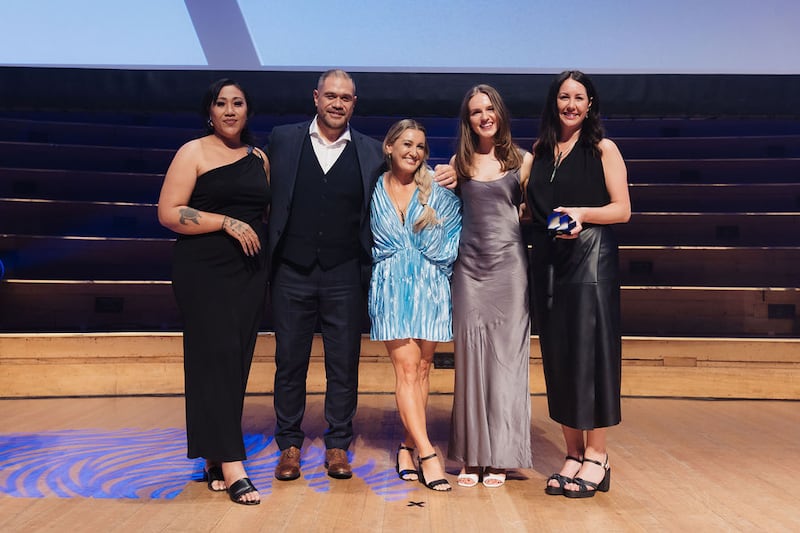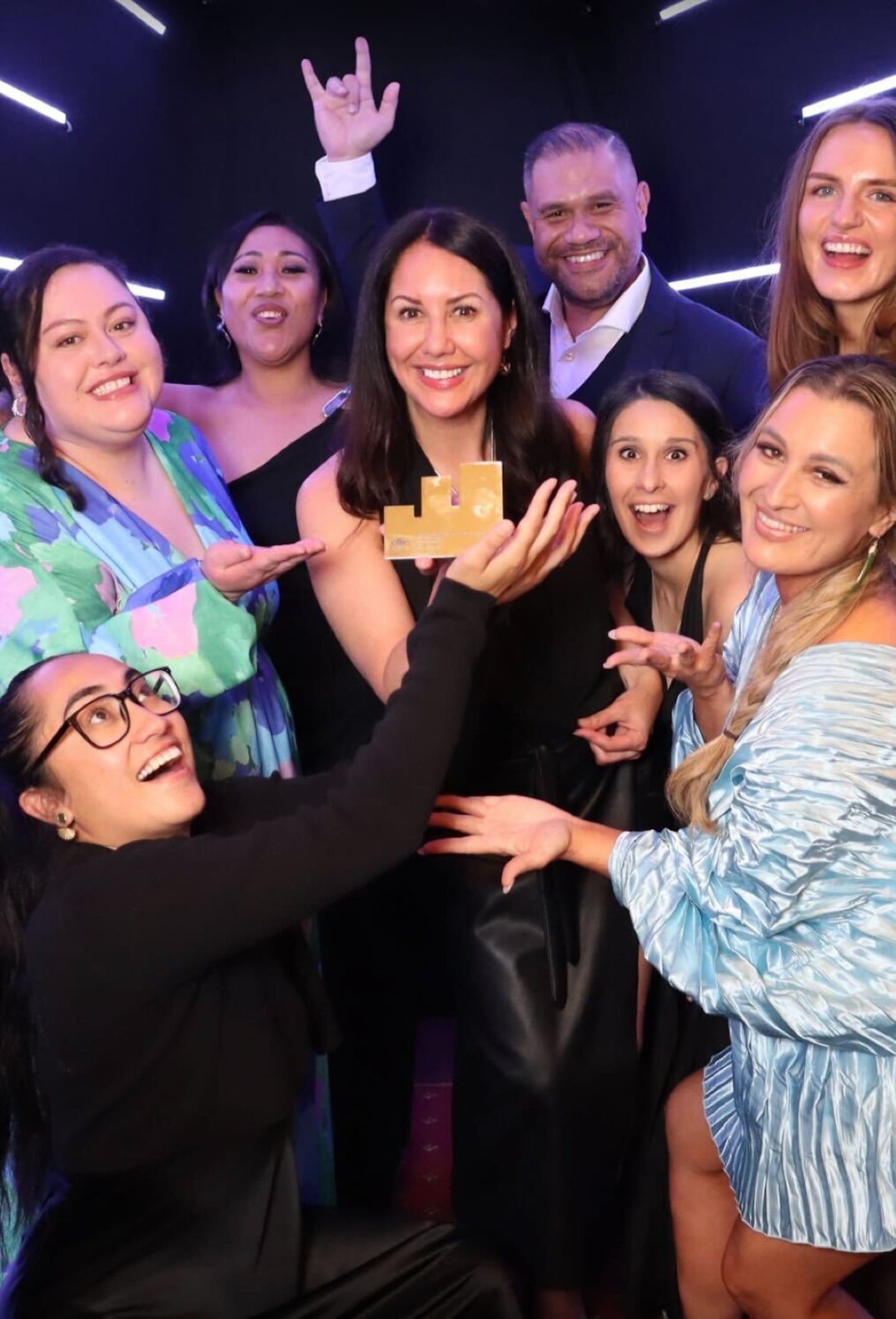A 100 percent Māori-owned agency has won a silver award at the Effie Awards for marketing campaigns for promoting a whānau homeownership initiative in an area of east Auckland once torn apart by state house evictions, protests and claims of gentrification.
Māia, an Auckland-based agency with the tagline “the home of kaupapa-driven communications in Aotearoa”, was recognised with the award for leadership in diversity, equity and inclusion-led marketing at a gala event at Auckland Town Hall on Thursday.
The agency received the silver award for its ‘Step Into Your Place’ campaign for Tāmaki Regeneration, a controversial large scale urban renewal programme in Tāmaki - an area encompassing Glen Innes, Panmure and Point England suburbs in east Auckland.

Its campaign was recognised for its “excellence in educating, inspiring and empowering whānau to begin their shared homeownership journey with the Tāmaki Regeneration ‘OWN IT’ programme,” Māia said Friday in a release.
The agency’s release said the campaign addressed a deep-rooted issue for Tāmaki whānau.
“[D]isconnection from whenua (land) and whakapapa (genealogy), resulting in deep generational trauma and whakamā relating to homeownership.”
Māia founder and managing director, Mihi Blake (Ngāti Tūwharetoa, Ngāi Tūhoe, Ngāti Maniapoto, Ngāti Awa), said the challenge was to engage a community that has been historically and systematically excluded from home ownership and help them realise their rightful place in it.
“We needed to meet potential OWN IT whānau exactly where they were and educate, inspire and connect them to the dream of a future rich in stability and pride through home ownership in Tāmaki. Through this, we could enable Tāmaki whānau to step into their place.”

More than 1,620 Tāmaki whānau registered for OWN IT in less than seven months of campaign activity, far exceeding the KPI of 1,000 registrations, the release said.
“Many lines of lineage, thousands of people and an entire community have been impacted,” said Afoa Tevita Malolo, Tāmaki Regeneration GM of Social Transformation and Partnerships.
He said 1,620 whānau had taken the first step to reclaim their whenua and break generational trauma.
“More mana whenua are now on the way to reclaiming their whenua, not only for themselves but for future generations.”
The controversy surrounding the area’s urban renewal dates back more than a decade, when the removal of state houses and eviction of long-term Māori and Pasifika residents from their homes sparked protests, arrests and accusations of large scale gentrification.
Since then Tāmaki Regeneration said it has engaged with mana whenua and listened to the concerns of protestors, with several hundred Māori whānau from the area now rehoused in modern, healthy homes.
This article has been updated with an image from the Tāmaki Regeneration ‘OWN IT’ campaign.



